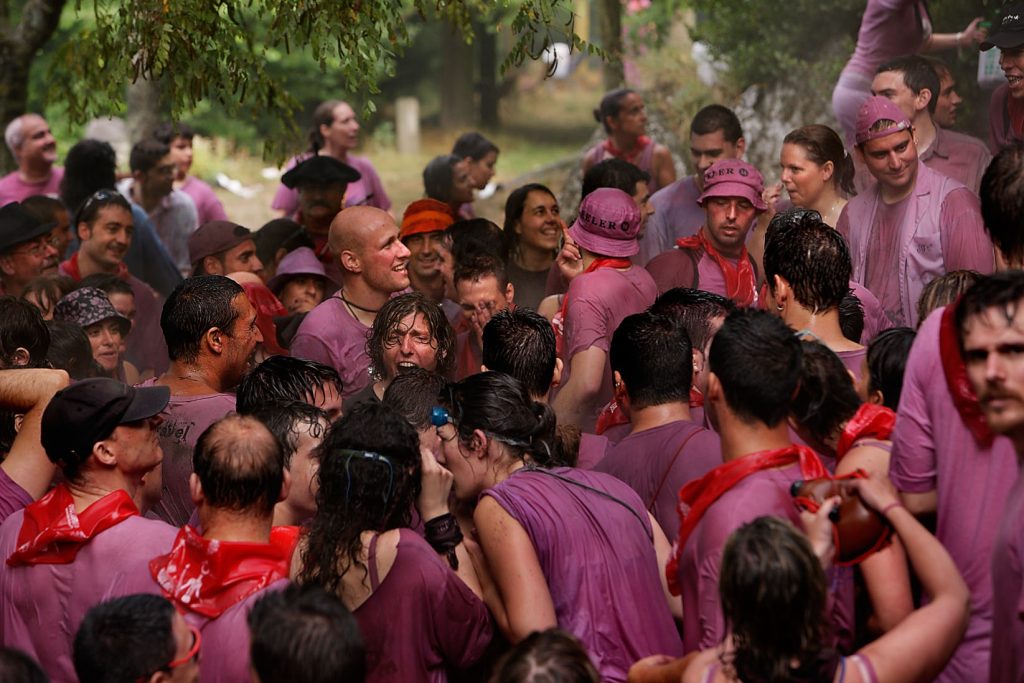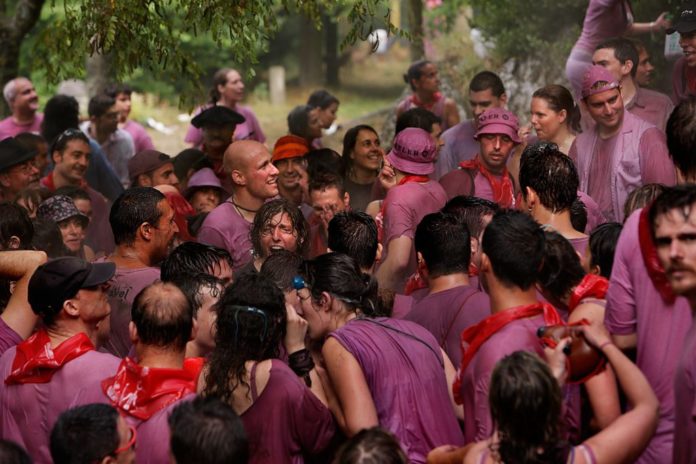Considering
every city, town and village in Spain hosts a
yearly celebration of some kind, 1000 is an obvious gross understatement when
it comes to numbering the amount of actual Spanish Fiestas that are held each
year.
Every single day sees townsfolk somewhere in Spain,
celebrating like there’s no tomorrow, spilling out onto the streets to party as
families, as friends, with their neighbours and with total strangers, all as
part of their local yearly festivities. From new-borns to the oldest members of
their communities the Spanish people embrace a party like no other culture on
earth and the way they party has to be seen and experienced to be believed.
Most Fiestas in Spain have their history and traditions culturally entwined with paganism and religion but there are plenty of crazy, bizarre and downright unbelievable celebrations in Spain that have their basis in agriculture, the seasons, animals and other parts of everyday life. Indeed there are some festivals that not even the locals know of their true origins.
Here
is our list of the 5 most bizarre Spanish Fiestas to attend:
- The Basque Bellringing Festival – Sporting
tall pointy hats bedecked with colourful ribbons are the ‘Joaldunak’, a group
of hefty bell-rings clothed in sheepskins worn over lace petticoats with giant
cowbells strapped to their backs. These bell-ringers stomp through the town
swinging horsetails and chanting, invoking locals, many of whom are dressed up as fantastical wild beasts, to join
them on their march through the streets. This fiesta is held in the mountain
villages of Ituren and Zubieta in Navarra.
- The
Cantabrian town of Silio, in a bid to farewell winter each year, always holds
their annual La Vijanera Festival on the first Sunday of January. Here
locals dress up as trees and as a variety of other whacky characters as they
bid to ward off the cold in this seasonal extravaganza of colour and
quirkiness.
- Devils run wild in the Spanish village of Castrillo de Murcia near
Burgos every mid-June as the village celebrates the Festival of El Colacho or The
Baby Jumping Festival. Meant to represent the triumph of good over evil
this festival takes place on the Sunday after the Feast of Corpus Christi.
Babies born during the previous year are laid on mattresses in the streets and
costumed men dressed as devils leap over them in a baptism of sorts believed to
absorbs the future sins of the babies, and afford them protection from disease
and misfortune. On completion of the baby jumping the infants are anointed and
sprinkled with rose petals and promptly reclaimed by their parents.
- Held on St Peters Day each year
(29th June) is the very messy Haro
Wine Fight or La Batalla Del Vino. Locals climb into the foothills of a nearby
mountain and, in a celebration of a past land dispute or of an ancient holy
pilgrimage (depending on who you ask), they promptly throw red wine all over
each other as the hillside turns blood red.

- The Fallas of Valencia sees the city’s streets lit up in an amazing
festival of fire, light and sound that runs for a week in mid-March. Local
clubs build gigantic paper mache figures representing famous or notable people,
(that they take all year to build), that they then display in the streets for a
time after which they are promptly burned to ashes in the festivities big finale. This is always one of the
biggest events held in Spain each you with millions attending the event.
The absolute best way of getting to know Spain a little
better and to briefly immerse yourself in Spanish culture is to travel around
Spain and try to discover some of these lesser known festivals for yourself. We
promise you, you’ll never forget the enriching life experiences you’ll be able
to enjoy in Spain, all the while learning a little of the language and gaining
a better understanding of a different culture and way of life.
Many people who plan on taking part in some sort of Spanish
Festivity or Celebration use reputable tour companies such as PP Travel to assist with their travel planning to Spain. PP Travel are
specialists tour group operators to La Tomatina, San Fermin and the Haro Wine
Fight and will ensure your fiesta experience is an experienced to be remembered
for a lifetime.
Hurra Por España (Hooray for
Spain)!





